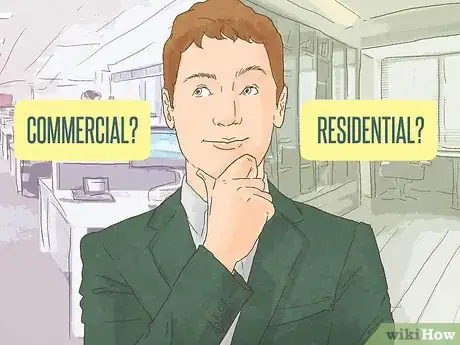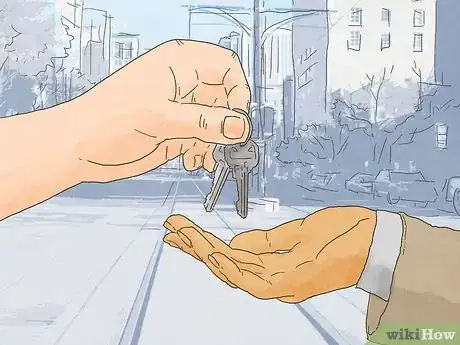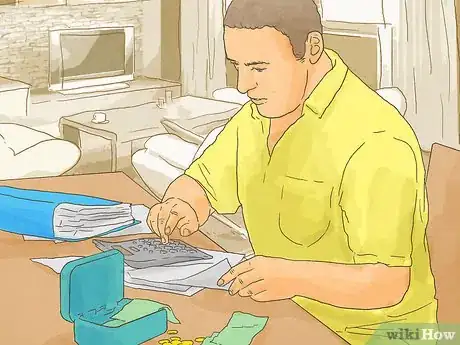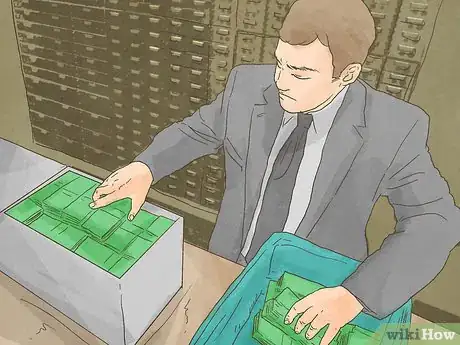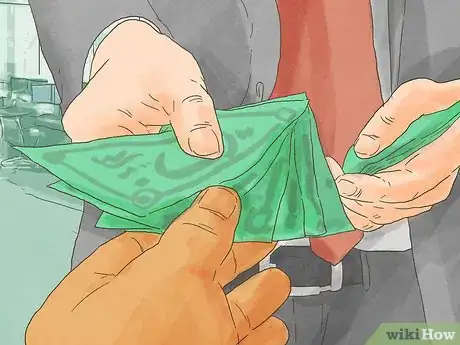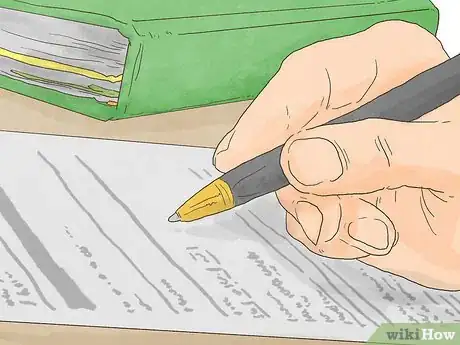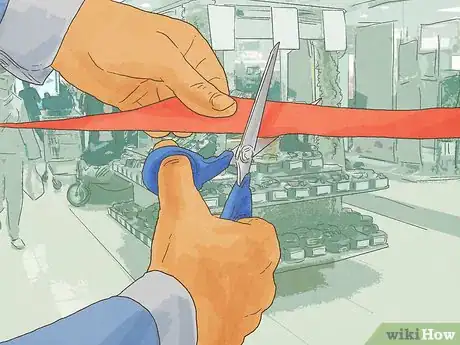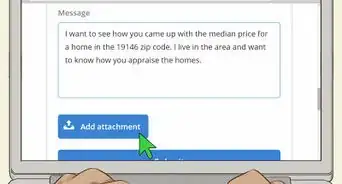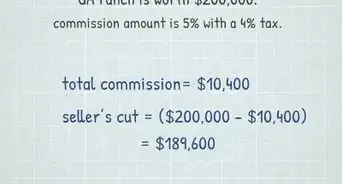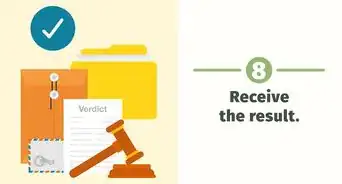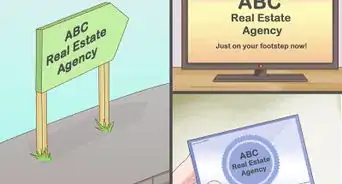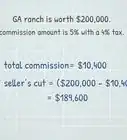This article was co-authored by Michael R. Lewis. Michael R. Lewis is a retired corporate executive, entrepreneur, and investment advisor in Texas. He has over 40 years of experience in business and finance, including as a Vice President for Blue Cross Blue Shield of Texas. He has a BBA in Industrial Management from the University of Texas at Austin.
There are 8 references cited in this article, which can be found at the bottom of the page.
wikiHow marks an article as reader-approved once it receives enough positive feedback. In this case, 100% of readers who voted found the article helpful, earning it our reader-approved status.
This article has been viewed 214,235 times.
You might be interested in learning how to open a real estate brokerage if you have an affinity for real estate, a sound knowledge of business, and are comfortable with brokering deals that involve large sums of money. A real estate brokerage brings sellers and buyers of real estate together and, for a percentage of the deal, negotiates their transactions. Although the real estate market can fluctuate wildly, starting a real estate brokerage can be a profitable next step for any real estate agent with sufficient financial resources and contacts.
Steps
Analyzing the Business
-
1Determine what type of real estate brokerage you want to open. There are brokers who specialize in residential real estate, commercial real estate, national real estate, international real estate or a combination.
- It's best to specialize in a particular real estate niche as opposed to trying to market your brokerage as a "one size fits all" business.
-
2Assess market demand for your services. Does the market in your community justify the existence of your business? How much of a demand is there in your area for the real estate services that you'll be providing? Is that demand expected to grow over the next several years? What are the overall prospects for the real estate market in your vicinity? Who are your competitors and how effective are they at market penetration?[1]Advertisement
-
3Determine whether your business could be profitable. How much money do you expect to make over the next five years with your real estate brokerage business? How can you justify those earnings? How much do you plan on growing each year over the next five years? Answering these questions may be difficult, but they are crucial in determining whether or not you can realistically expect to stay in business for long.
-
4Write a business plan. Your business plan is a summary of your business and its strategies that you can show to potential investors or lenders. It is intended to be used to show them that you have a solid plan for your business compiled from research and experience. Your business plan should:
- Include an executive summary. An executive summary will give prospective lenders and investors a quick overview of your business model and explain how you expect to make money.
- Don't forget to include a mission statement.For example: "Our goal is to make it easy for our clients to find their dream home."
- Provide an overall description of your company. Your business plan starts with a description of your real estate brokerage. It should explain the services that you're offering, the needs of the market that you're satisfying, and a description of your target market.
- Describe your organization and management. This is where you'll describe the legal structure of your business, such as whether you're organized as an LLC, a partnership, a C or S Corporation, or a sole proprietor. You'll also use this section to highlight management experience in the industry.
- Explain your marketing strategy. How are you going to promote your real estate services? What is it that differentiates your real estate brokerage from others in the area? [2]
- Don't forget to specify your unique selling proposition (USP). That's the service you're offering that sets you apart from your competitors.[3]
- Include financial projections.
- Be sure to forecast growth in both income and expenses.[4]
Financing Your Brokerage
-
1Estimate the capital you'll need to run the business. Before you even start out, you'll need money to run your real estate brokerage. Estimate your startup costs for leasing an office, buying office equipment, getting licensed, and for other expenses.
- You'll need startup capital as well as working capital. Startup capital is what you'll use to get your business off the ground. Working capital is what you'll use to pay for day-to-day operations.
-
2Finance your business yourself. The simplest way to start your business is to use your own savings to do so. This will free you from ceding control to another partner or paying interest to a lender. However, the amount required to start your business will likely be higher than you are able to afford using your savings alone.
-
3Bring on partners. If you don't want to take out a loan or don't qualify for one, you can bring on a partner to help you finance your startup costs. Your partner will come into the business by providing capital in exchange for an ownership share in the business. This will allow them to make business decisions (with you) and own a share of any profits. Partnerships must be structured using an official charter to effective and, in some states, legally recognized.
- You can also bring on a silent partner if you can find a willing investor. A silent partner contributes capital and owns part of the business, but does not make any business decisions or work. This would allow you to operate the business yourself using their money.
-
4Get a bank loan. You should put some of your own money into your business, but all of your capital doesn't need to come from your own pocket. Consider getting a loan from a local bank to help you get started. You will need good credit and an effective business plan to qualify for this type of loan.
-
5Obtain a Small Business Administration loan. The Small Business Administration (SBA) is a great source of loans for small businesses. To qualify, you need to demonstrate an ability to repay the loan, either in assets or revenues. Your personal assets also count towards the potential collateral on your loan. The SBA may be more likely to lend to some businesses than banks are. Visit your local SBA branch or the SBA's website to get started.
Launching Your Brokerage
-
1Obtain all required licenses. The requirements may vary, depending on where you live. In some states and countries, you can get your real estate agent's and broker's licenses at the same time, while elsewhere you may have to be a licensed agent for at least a year before applying for your broker's license.
-
2Choose a location for your office. You're into real estate, so you already know that location is important. Make sure that you select a great office space for your business that's easily accessible and offers plenty of parking.
-
3Equip your office. You're going to need computer equipment, office furniture, a fax machine, and the usual office supplies.
-
4Open broker trust accounts at your bank. All real estate brokers are legally required to use broker trust accounts to deposit the money they receive from clients while brokering a deal.
-
5Purchase errors and omissions insurance. There is some level of liability associated with a real estate brokerage. Be sure that you're properly covered with good quality insurance.
-
6Set up a website. Once you've established your business as a real estate brokerage, it's time to set up a website so that you can market the properties your listing to people who are browsing online for real estate.
- According to one report, 90% of home buyers start their search online.[5] If you don't have a solid online presence, your real estate brokerage is going to lose market share.
- Contact a web development company that specializes in creating websites for real estate brokerages. That way, you can be sure that your site not only presents a professional image but is also able to display properties that are in the Multiple Listing Service (MLS).
- Your website will need to be updated regularly to reflect changes in the real estate market. For example, you don't want people to browse your site and find a property for sale that's already under contract.
- Hire a search engine optimization company to optimize your website for local searches.[6] That way, when people in your area search for a particular type of real estate listing, your page appears at or near the top of the results list.
-
7Prepare an independent contractor agreement. When you do get to the point where you need to hire additional agents, you'll need a legal agreement in place that spells out their responsibilities and describes your expectations of agent behavior.
Growing Your Business
-
1Make a list of your contacts in real estate that includes people and businesses that can alert you to sellers and buyers.
- A real estate business is essentially a sales business. It thrives on relationships. Build a list of contacts in your area and maintain a professional relationship with those people.
-
2Advertise your business. Advertising is one of the best ways to get the word out about your business. However, it can be expensive. Be sure to measure the effectiveness of your advertising campaigns by always asking prospective clients how they heard about your business.
-
3Build brand awareness about your brokerage. Sponsor a charitable event or a little league team in your area to keep the name of your business in people's minds.
-
4Generate buzz about your business. Good public relations (PR) is better than advertising because it's free and it carries more authenticity.
- Sign up for HelpAReporter.com (HARO).[7] That way, when journalists need an expert on the real estate market in your area, they're more likely to contact you. They'll include your name and the name of your business in their reporting. That's free advertising.
- Distribute press releases with services that allow you to do so for free. Check out sites like Free Press Release[8] .
- Make frequent use of social media to post news items relevant to your business. Also, post funny memes and show your human side with personal stories. Be careful about being too "salesy" with your social media accounts, though.
- Offer to be a speaker at real estate and business conferences. You especially want to be a speaker at events in your immediate area.
-
5Hire qualified agents who are local and can bring in more business. Keep in mind that, if you're just starting out in the real estate business, you might be a one-person shop. That's normal. However, as your business grows, you'll need to hire additional staff.
References
- ↑ https://www.sba.gov/content/market-analysis
- ↑ https://www.sba.gov/content/marketing-sales-management
- ↑ http://www.entrepreneur.com/encyclopedia/unique-selling-proposition-usp
- ↑ https://www.sba.gov/content/financial-projections
- ↑ http://www.realtor.org/sites/default/files/Study-Digital-House-Hunt-2013-01_1.pdf
- ↑ http://searchengineland.com/local-seo-rank-local-business-218906
- ↑ http://www.helpareporter.com/
- ↑ http://www.free-press-release.com/
About This Article
To open a real estate brokerage, start by estimating the capital you’ll need to startup and run the business, including leasing an office, buying office equipment, and getting licensed. Next, decide if you can finance your business, if you’ll need a partner, or if you want to apply for a bank or Small Business Administration loan. Once you have your licenses and office taken care of, open a broker trust account at your bank to deposit the money you’ll receive from clients while brokering deals. You’ll also need to purchase errors and omissions insurance. To learn how to grow your real estate brokerage business, keep reading!
